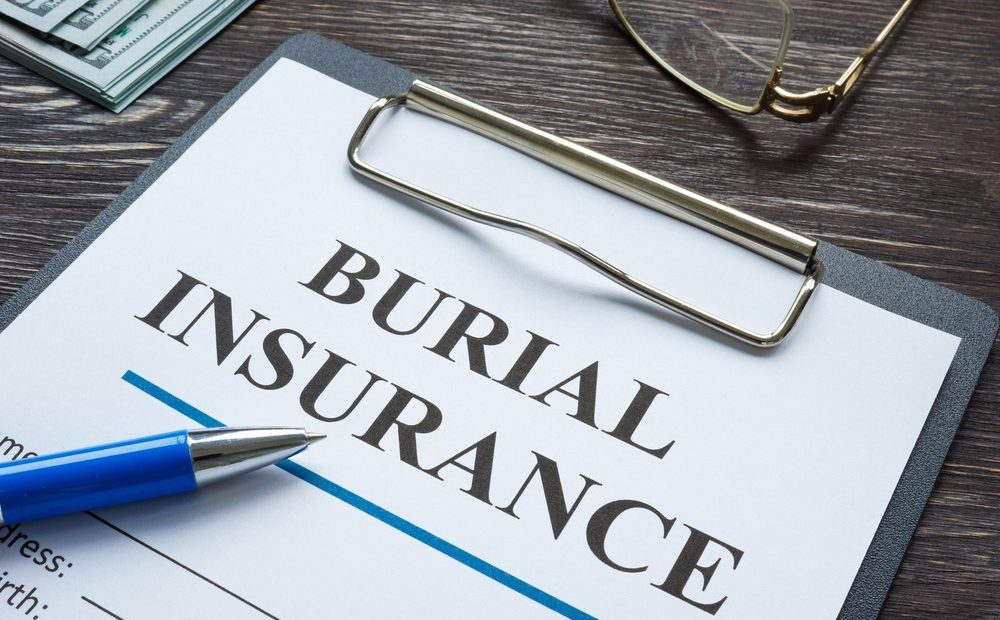Planning for the inevitable is never easy, but ensuring that your final expenses are covered can provide peace of mind for both you and your loved ones. Burial insurance, also known as final expense insurance, is a type of policy designed specifically to cover end-of-life expenses, such as funeral costs, burial or cremation, and other related expenses.
In this blog, we’ll break down exactly what burial insurance is, how it works, and why it may be a smart option for those looking to ensure that their loved ones aren’t left with financial burdens after their passing.
What is Burial Insurance?
Burial insurance is a type of life insurance policy that provides a smaller death benefit, typically ranging between $5,000 to $25,000, to cover the costs associated with funerals, burial or cremation, and other final expenses. While traditional life insurance policies are designed to cover larger financial obligations, like mortgages or income replacement, burial insurance focuses solely on providing funds to cover funeral costs and other end-of-life expenses.
This type of insurance is especially popular among seniors who want to make sure that their loved ones don’t face the financial strain of funeral costs. Funeral expenses in the United States can range anywhere from $7,000 to $12,000 or more, and without proper planning, these costs can become a significant burden for families.
How Does Burial Insurance Work?
Burial insurance works much like a traditional life insurance policy. When the policyholder passes away, the beneficiary receives a lump sum payment (the death benefit) that can be used to cover funeral expenses, burial or cremation costs, and other final expenses.
Here’s how the process works:
- Choosing a Policy: When purchasing burial insurance, you’ll choose a policy with a specific coverage amount, typically in the range of $5,000 to $25,000. This amount is meant to cover the costs of your final arrangements and related expenses.
- Paying Premiums: Just like other insurance policies, you’ll need to pay monthly or annual premiums to keep the policy active. Burial insurance premiums are generally affordable and can remain fixed for the life of the policy, meaning your premium will not increase as you age.
- No Medical Exam Required: One of the benefits of burial insurance is that it is generally easier to qualify for than traditional life insurance. Many policies do not require a medical exam, making it a great option for individuals with health issues. There are typically two types of burial insurance policies:
- Simplified Issue: This policy does not require a medical exam but may involve answering a few health-related questions.
- Guaranteed Acceptance: This policy guarantees coverage with no medical questions or exams. However, guaranteed acceptance policies usually come with a waiting period before the full death benefit is available.
- Claiming the Death Benefit: When the policyholder passes away, the beneficiary (often a family member) will need to file a claim with the insurance company to receive the death benefit. The funds can be used to pay for the funeral and burial or cremation, as well as other final expenses like outstanding medical bills or small debts.
What Does Burial Insurance Cover?
Burial insurance is specifically designed to cover a wide range of funeral and end-of-life expenses. Here’s what burial insurance can help cover:
- Funeral Home Services: Funeral homes charge for organizing and conducting the service, handling the body, and arranging transportation. These services typically cost between $2,000 and $3,000.
- Casket or Urn: The cost of a casket can range from $2,000 to $5,000, while urns for cremation typically cost between $200 and $1,000.
- Burial Plot or Cremation: Burial plots can cost between $1,000 to $4,000, depending on the cemetery and location. Cremation services usually cost between $2,000 and $5,000.
- Grave Marker or Headstone: A grave marker or headstone can range from $500 to $5,000, depending on the material and design.
- Transportation of the Body: Costs for transporting the body to the funeral home, church, and cemetery are also covered. These expenses typically range from $300 to $600.
- Additional Final Expenses: Burial insurance can also cover related final expenses such as unpaid medical bills, outstanding debts, or legal fees associated with settling the deceased’s estate.
Who Should Consider Burial Insurance?
Burial insurance is a practical option for many people, but it is particularly beneficial for:
- Seniors: Burial insurance is ideal for seniors who may not qualify for traditional life insurance due to age or health issues. It provides a straightforward way to ensure that funeral expenses are covered.
- Individuals Without Life Insurance: If you don’t have life insurance or your current life insurance policy is insufficient to cover funeral expenses, burial insurance can provide the coverage you need.
- People with Pre-Existing Health Conditions: Burial insurance is typically easier to qualify for than traditional life insurance, making it a good choice for individuals with health issues who may not pass a medical exam required by other policies.
- Families Without Savings for Funeral Costs: For families that may not have savings set aside for funeral expenses, burial insurance provides peace of mind knowing that the necessary funds will be available to cover end-of-life costs.
Types of Burial Insurance
There are two main types of burial insurance policies: simplified issue and guaranteed acceptance.
- Simplified Issue Burial Insurance:
This type of policy requires you to answer some basic health-related questions but doesn’t require a medical exam. If you are in relatively good health, you may qualify for a simplified issue policy, which often has lower premiums than guaranteed acceptance policies. - Guaranteed Acceptance Burial Insurance:
This type of policy guarantees coverage without any medical exams or health questions. It is a great option for individuals with pre-existing health conditions. However, it may have a waiting period, usually between one to two years, before the full death benefit becomes available. If the policyholder passes away during the waiting period, the beneficiary may receive a return of premiums rather than the full benefit.
How to Choose the Right Burial Insurance Policy
When choosing a burial insurance policy, it’s important to consider several factors:
- Coverage Amount: Calculate how much coverage you need based on the type of funeral or cremation you prefer and any additional expenses you want to cover, such as medical bills or debts.
- Premiums: Look for policies with affordable, fixed premiums to ensure that you can comfortably pay for your policy over the long term.
- Type of Policy: Consider whether a simplified issue or guaranteed acceptance policy is the right fit for you based on your health and financial situation.
- Reputation of the Insurer: Choose a reliable insurance provider with a strong track record of customer satisfaction and timely claims processing.
How We Can Help
At Policy Ocean, we specialize in helping individuals and families find the right burial insurance policy to meet their needs. We compare rates from top insurance providers to ensure that you get the best coverage at an affordable price. Whether you’re looking for a policy with guaranteed acceptance or simply want to ensure that your final expenses are covered, we’re here to guide you through the process.
For personalized assistance and to explore burial insurance options, contact Policy Ocean today. Let us help you secure peace of mind, knowing that your loved ones will be protected from the financial burden of funeral expenses.





